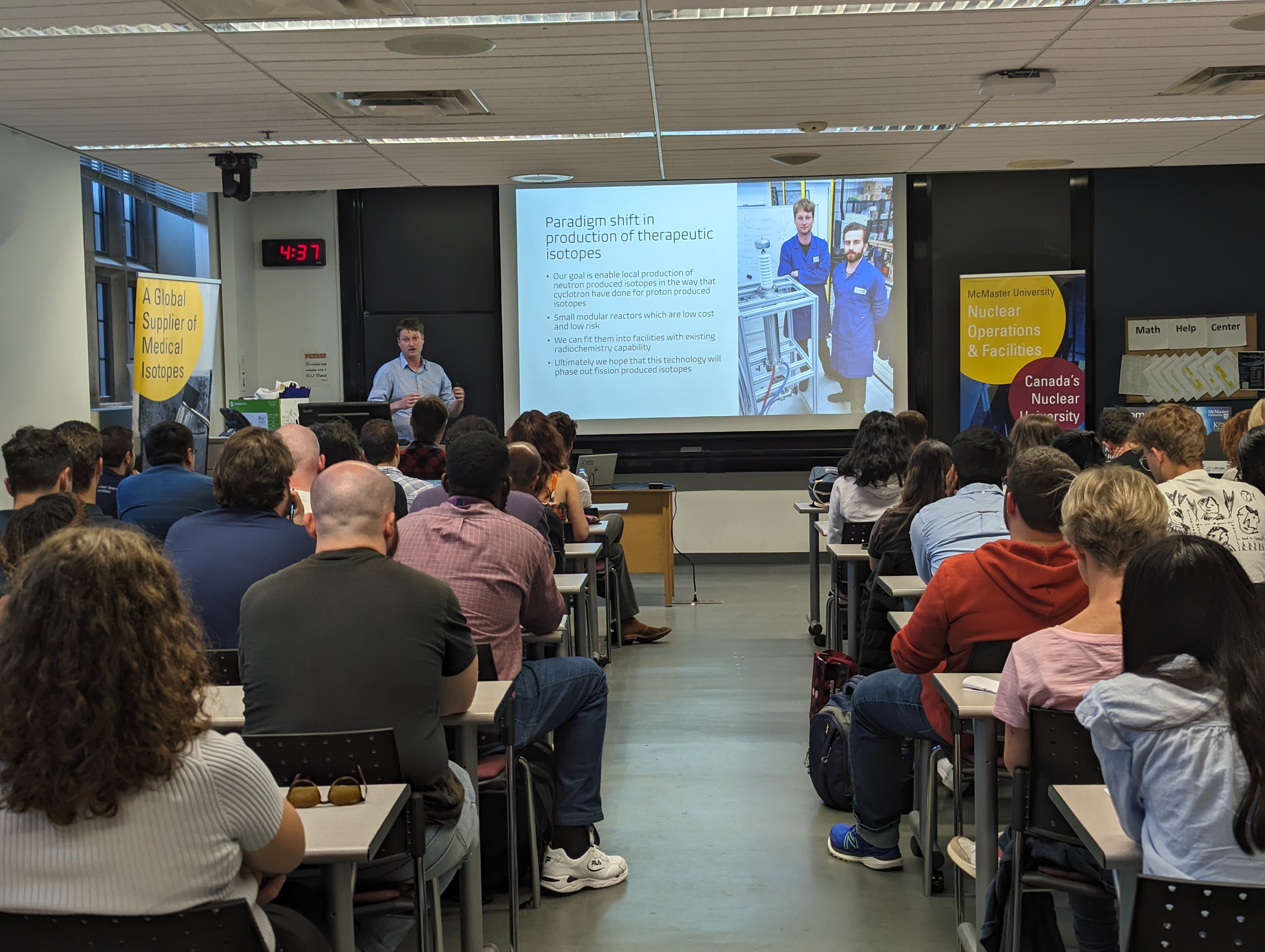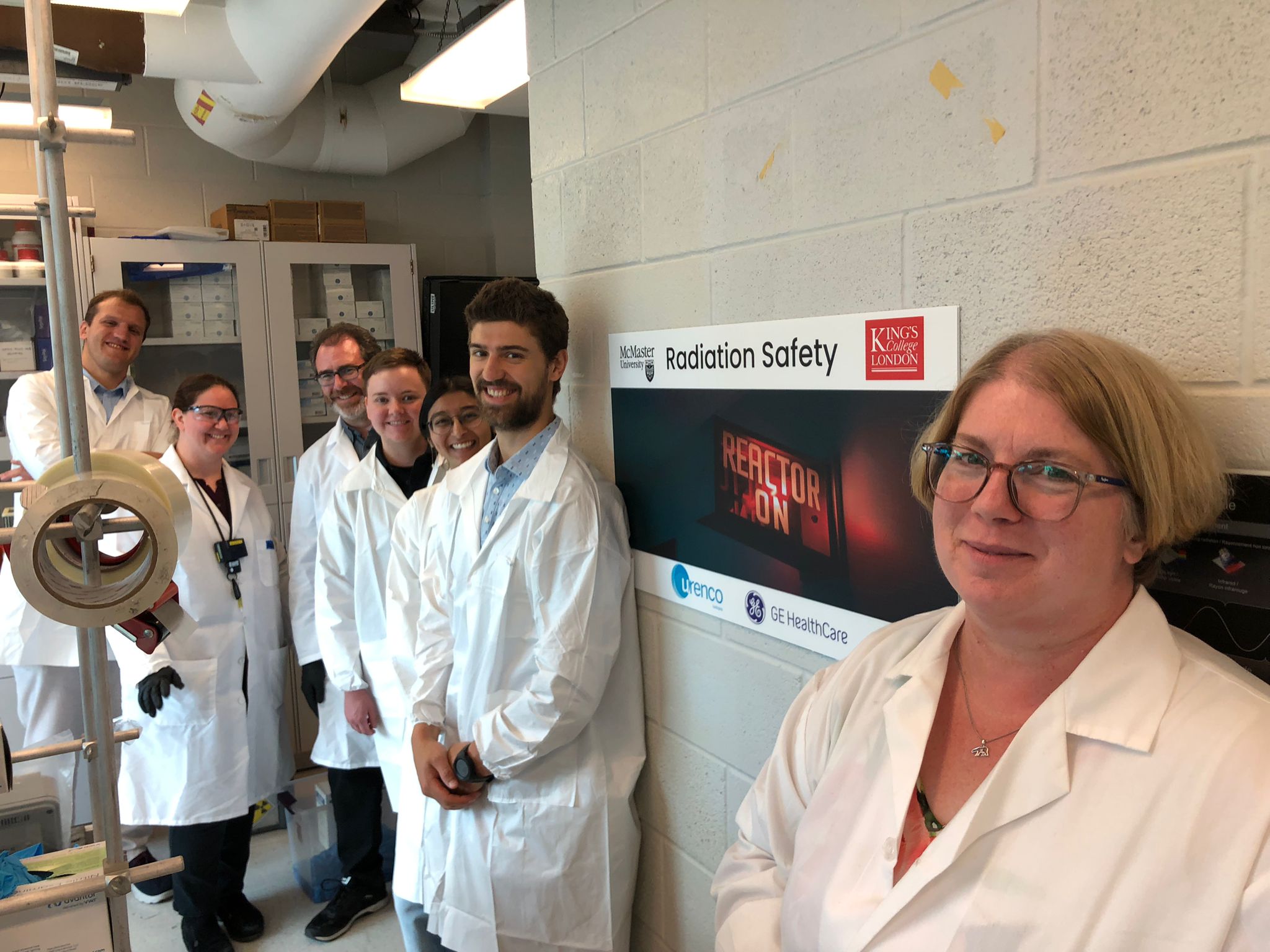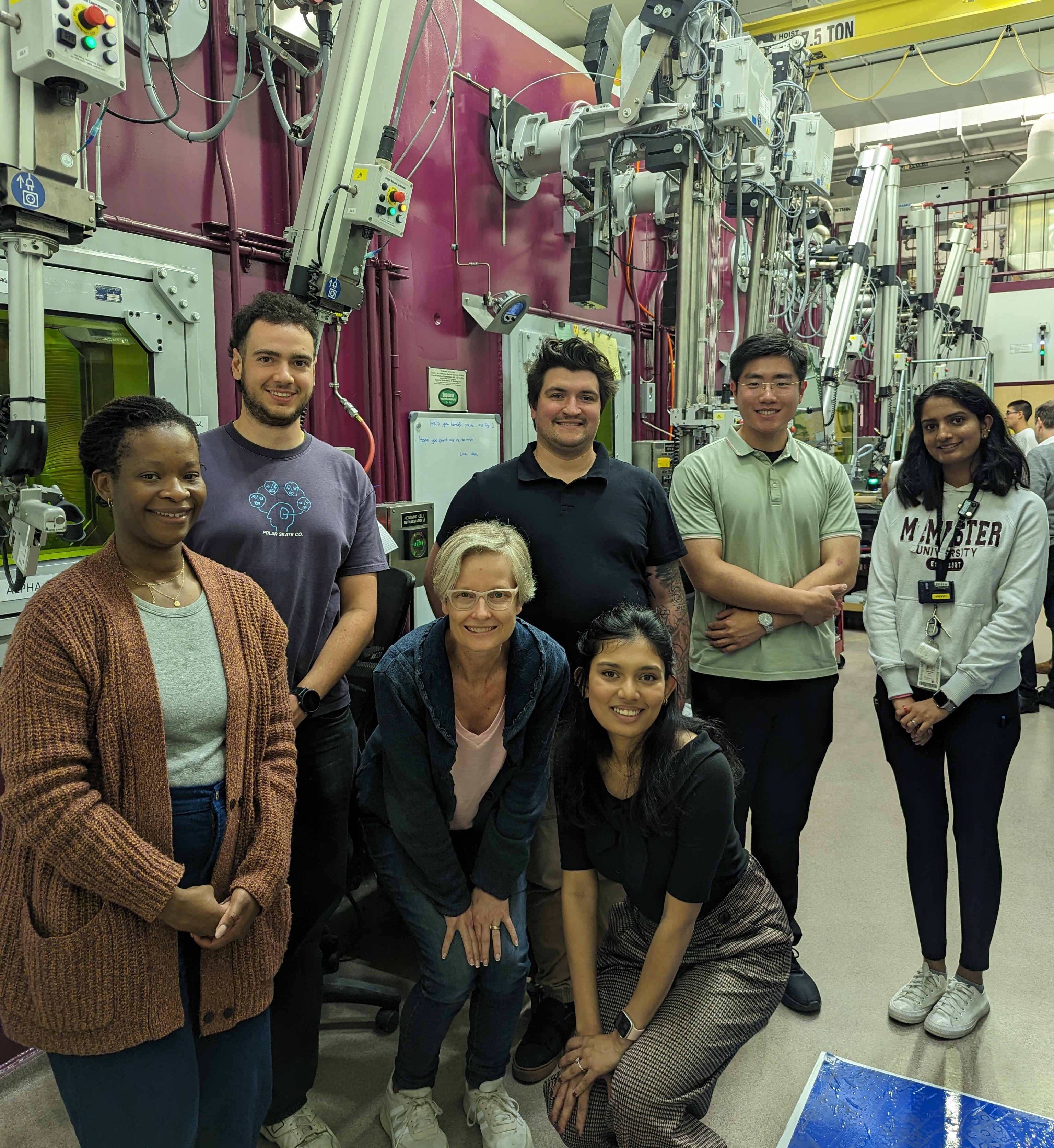Next Generation in Nuclear Medicine workshop provides skills-building for young professionals

Thirty-one graduate students and early career professionals gathered at McMaster in June for the first-ever Next Generation in Nuclear Medicine workshop, hosted in partnership with King’s College London.
The three-day workshop is designed to help participants strengthen their academic, technical and professional skills in the field of nuclear medicine and molecular imaging.
The 2024 inaugural workshop included educational sessions focused on radiation safety, isotope production, radiopharmaceuticals and more – all led by nuclear experts from McMaster and King’s and held within McMaster’s world-class nuclear research facilities and labs, where medical isotopes for over 70,000 patients are produced and processed each year.
Participants got to engage in hands-on learning activities at McMaster’s nuclear reactor, hot cells, cyclotron facility, high-level labs and neutron activation analysis centre. To close out the workshop, participants presented what they learned about various medical isotopes – including their unique production processes and applications in diagnostics and medical treatments.
With the need for nuclear medicines growing rapidly around the globe, the next generation of leaders in the field will play a crucial role in the development of new life-saving radiopharmaceuticals, says Erica Dao, Manager of Nuclear Outreach and Education.
“McMaster is at the forefront of innovations in medical isotope research and production. It was wonderful to host so many talented young leaders at our facilities, where they got to enhance their knowledge and skills and explore first-hand the positive impact that they can make in tackling current and future challenges in nuclear medicine,” she says.
“We’d like to thank everyone who joined us for the workshop, as well as our partners at King’s and our sponsors – Urenco, GE Healthcare, Bruce Power, the Canadian Nuclear Isotope Council and LabLogic – for working with us to make this first-of-a-kind program a success.”
Take a look at some highlights from the workshop below.

Nuclear experts from McMaster, King’s and the nuclear industry gave lectures on a variety of topics – from radionuclide production and radiobiology to targeted alpha therapy and whole-body positron emission tomography (PET). Tom Haywood from Astral Systems gave a presentation focused on fusion reactor-based medical isotope production.
Participants learned about the core principles of radiation safety, which include radiation detection and wearing Personal Protective Equipment (PPE).


McMaster is home to several radiopharmaceutical hot cells. As part of the workshop, participants tested out the hot cell manipulator arms, which researchers use to handle radioactive materials safely.
Inside one of McMaster’s high-level labs, participants used radiation detectors and a process called neutron activation analysis to identify the composition of samples.


Participants toured the Nuclear Medicine unit at the McMaster University Medical Centre and learned about imaging and treatment planning with radioisotopes. Using software, they calculated how radiopharmaceuticals build up in targeted organs and how clinical imaging can support treatment planning and therapy.
Participants visited the Centre for Advanced Nuclear Systems (CANS), where they learned how radioactive work flows through each of the Centre’s five hot cells.


To end the workshop, participants got to develop their presentation skills and share their findings on technologies that will play a central role in the future of nuclear medicine.
